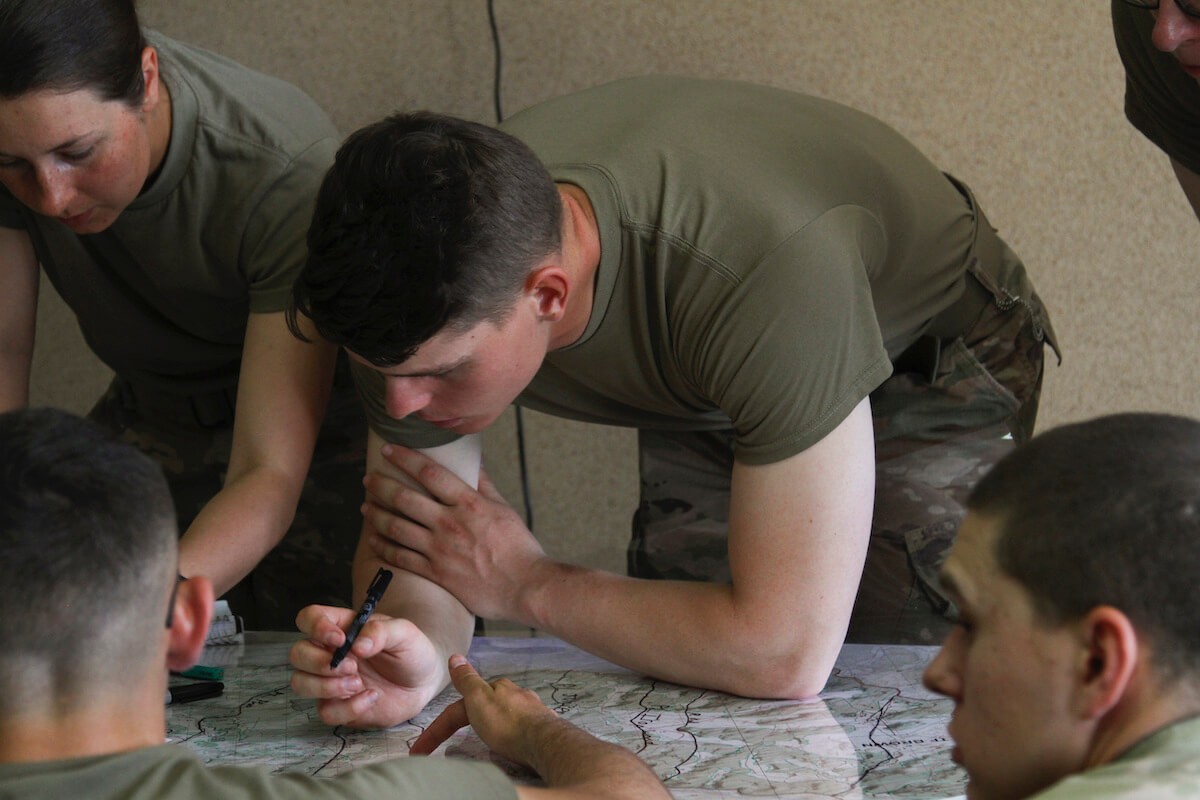Civilian Jobs After Serving In Military Intelligence

Finding Jobs in the Civilian Sector After a Career in Military Intelligence
Working in military intelligence while in the service can help you with your post-military career.
There are many different paths you can take after military life is over based on your skills and what you have learned during your time in the military. Here are 4 options for after-military careers if you worked in military intelligence.
Information Security Analyst
An information security analyst protects a company’s systems and networks. They are responsible for keeping important information safe from hackers and unauthorized users.
Your experience with signals intelligence and electronic warfare can be applied to this type of position. Computer and programming experience is important. Being able to work with others and stay calm under pressure are also important skills for this type of job.
You must have a bachelor’s degree to be an information security analyst. Having a focus on a major that includes programming courses, courses in computer science, information technology, or a similar subject is ideal.
>> Find job opportunities with our Veteran Job Matcher. Get Started today!
Database Administrator
A database administrator creates and optimizes large-scale databases and ensures that only authorized users can access protected information. They are responsible for storing, organizing, presenting, using, and analyzing data, as well as managing database software.
While in military intelligence, you handled and delivered sensitive information, and you can apply those skills in this civilian career. You would need to be highly trained in computers, and need to have a certificate or an associate’s degree.
Some employers want you to have a bachelor’s degree or even a master’s degree. You could get employed by companies and organizations, and you may even need to travel to different locations.
Market Research Analyst
A Market Research Analyst would monitor a company’s market conditions, evaluate marketing campaigns and gather data on competitors and customers. They present their findings to management so they can understand how to help their company. They use statistics, surveys, interviews, and other data-collection methods.
You can use your strong communication skills, as well as knowing how to analyze data, to help you in this career path. Being detail-oriented is also important. To be a market research analyst you probably should have a bachelor’s degree but many also go on to get more advanced degrees and professional certificates.
Taking classes in business, marketing, social sciences, math, economics, computer science, and statistics can all be a great idea. You can also get certification from the Marketing Research Association (MRA).
About Military Intelligence
In the Army, there are several options for working in military intelligence, from being a Military Intelligence Officer MOS 35F to an Intelligence Analyst MOS 35F.
In the Navy, there are Intelligence Specialists and Intelligence Officers. And in the Marine Corps, there is MOS 0231 Intelligence Specialist and MOS 0261 Geographic Intelligence.
For the Air Force, there is the 1N Intelligence career path, and for the Coast Guard, there is the Intelligence Specialist career path.
In military intelligence, you collect, interpret, and analyze information about the environment, culture, and tactical movements of enemies. Depending on the military branch and career path, they can specialize in imagery, all-source, counterintelligence, human intelligence, signals/electronic intelligence, or other military intelligence areas.
You can find out about post-military jobs on College Recon, as well as information on going back to school, the GI Bill, and other military or veteran benefits.
>> Find job opportunities with our Veteran Job Matcher. Get Started today!
RELATED:
- How to Find a Job as a Veteran
- FBI Law Enforcement Careers for Veterans
- Jobs After the Military: Special Operations Forces
- Cyber Vulnerability Assessment and Management Specialist
About the author
Julie Provost is a freelance writer, and blogger. She lives in Tennessee with her National Guard husband and three boys.
